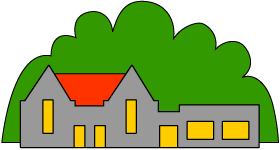At Aldborough Primary School, our aim is to deliver a broad History curriculum providing key knowledge, developing children’s understanding of
concepts, making links connecting their journey and to encourage all children to want to learn about the past.
EYFS
In EYFS, children should have time to talk about the lives of people within their families and how their roles fit into society. They should be able to notice some similarities and differences between things in the past and now and be able to draw on their own experiences and the books they have read in class to discuss this. The characters and events they read about in class and storytelling will enable children to begin their journey towards becoming a historian.
The History curriculum is planned to enable the most disadvantaged children and those with SEND to achieve. Utilizing alternative ways for children record their learning by using speech to text equipment allows topics to be accessed by all.
Our Historians will be able to explain clearly and in depth how evaluating a range of primary and secondary sources gives us an insight into how people around the world used to live and how these interpretations may differ. Making links between these areas of learning, we will aim to inspire our children to be enthusiastic and curious and reflective about the past and how it compares to the present day.
Our History curriculum has been designed to cover all of the skills, knowledge and understanding as set out in the National Curriculum. The National Curriculum states that ‘a high-quality history education will help pupils gain a coherent knowledge and understanding of Britain’s past and that of the wider world. It should inspire pupils’ curiosity to know more about the past.’ The History units taught have been developed to help children appreciate their own individuality and understand the challenges in their time. It will help them understand the process of change over time and significant developments both within and outside of our community.
The curriculum is delivered via a four-year cycle (with weekly lessons being taught, dependent on whether the half-term focus is Geography or History) to ensure pupils receive a broad and balanced curriculum enabling them to develop their chronological understanding of concepts whilst learning about particular periods of History and significant historical figures. The use of cognitive science techniques within the teaching of History is utilized to enable children to learn and retain knowledge whilst building on what they already know. Concepts are revisited across year groups and classes through different themes to ensure children have a solid knowledge base.
All learning will start by revisiting prior knowledge. This will be scaffolded to support children to recall previous learning and make connections. Staff will model and teach explicitly the subject-specific vocabulary, knowledge and skills relevant to the learning to allow them to integrate new knowledge into larger concepts. Cognitive Science approaches to the teaching of History will ensure children’s cognitive load is managed by using multimedia learning including dual coding to help them know and remember more. Spaced learning is also used to allow children ‘forgetting’ time and for teachers to revisit prior knowledge to see if it has been retained.
Unit overviews are used to ensure teachers plan for how topics link to the national curriculum, what prior learning should have taken place and what future learning will follow. These documents also facilitate planning of specific vocabulary to be taught alongside age specific skills taken from the long term plan.
Classrooms display subject specific vocabulary taught during a topic along with key facts and questions posed to engage and encourage children to use this information to help them learn and remember more.
History assessment is ongoing and will be used at different stages of children’s learning to check understanding of both current and previous content taught to allow for a period of forgetting.
Our historians will be given a variety of experiences both in and out of the classroom where appropriate to create memorable learning opportunities and to further support and develop their understanding. Subject leaders are given regular time to ensure resources are kept up to date, to monitor the subject across the school, create action plans and to provide subject feedback when appropriate.
At Aldborough Primary School, pupil voice shows that our children are confident and adept when talking about what they have learnt in History using the subject-specific vocabulary they have been taught. Pupil’s voice also demonstrates that pupils enjoy History and can recall their learning over time.
The Subject leader will have allocated time to meet with children to discuss their learning and work in the subject to ensure that they have opportunities to share and communicate their learning outside of their written books.
Children’s work in books indicates that History is taught at an age-appropriate level across each year group with opportunities planned in for children working at greater depth. Their work is of good quality with children taking pride in their presentation whilst demonstrating they are acquiring knowledge, skills and vocabulary in an appropriate sequence. At Aldborough Primary School, History assessment is ongoing throughout the teaching and learning of the subject to inform teachers about their planning, lesson activities and differentiation.’ Before a unit of work is delivered, children will undertake a pre-assessment involving three questions relating to the content to be taught in that unit. This will include both a disciplinary and a substantive knowledge-based question plus an additional question to allow for a greater in-depth response. This process will be repeated at the end of the unit to allow for progress to be shown. In Key Stage 1, the use of a pre-unit mind map and then a post-unit addition to the mind map in a different colour may be used as an alternative.
